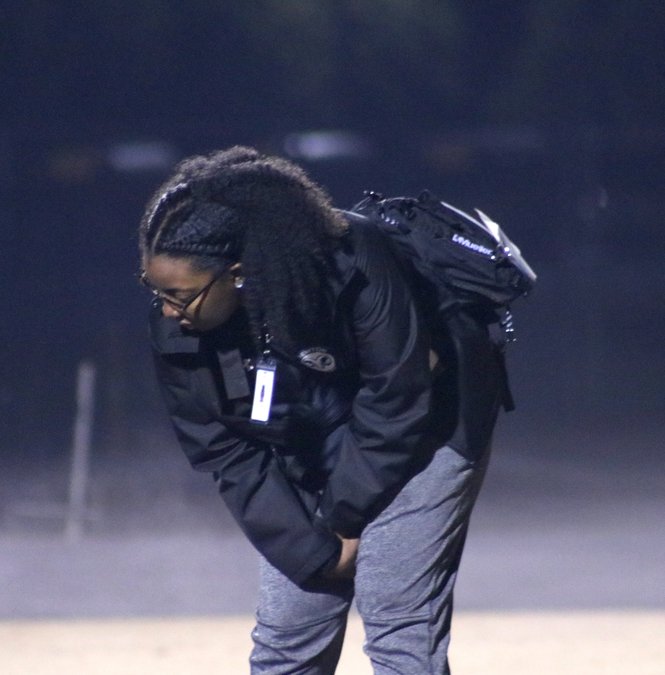Editor's Note: This article is part of a series recognizing National Athletic Training Month.
COVINGTON, Ga. — Jendayi Watkins originally enrolled at Trinity International University in Deerfield, Illinois to play basketball for the Lady Trojans. She was a power forward for the team all four years.
However, one incident changed Watkins’ life in more ways than one.
During a basketball game, Watkins hit the court hard and sustained a concussion — a concussion that went undiagnosed for a week until the Trojans’ athletic trainer stepped in. According to Watkins, her athletic trainer “really saved her life.”
“At first in college, I had no clue what I wanted to do,” Watkins said. “Initially, I wanted to be a nurse. But after playing college sports and suffering a couple of knee injuries and a concussion, it changed my whole perspective on healthcare and the world of athletic training. I think athletic training found me in a sense.”
Watkins completed her Bachelor’s in athletic training from Trinity International University in 2019 and, a year later, earned her Master’s degree in nursing at Augusta University.
She is currently the athletic trainer at Newton High School through her employment with OrthoAtlanta and has been an athletic trainer for three years total.
Though there are many aspects of what an athletic trainer does, Watkins highlighted one specific area she enjoys the most.
“I actually enjoy the recovery portion of athletic training. Being able to see an injury, see them rehab it and see them back all in that same year time frame is really cool,” Watkins said. “And being able to be a part of the process. I played college sports myself, and I think that’s why it’s so important to me.”
Watkins has worked at Newton High this school year where she provides a host of services to the Rams’ student-athletes. The six domains of athletic training are: Prevention, Clinical Evaluation and Diagnosis, Immediate and Emergency Care, Treatment and Rehabilitation as well as Organization and Professional Health and Well-Being.
And, though Watkins enjoys what she does, she recognizes there are some facets of the work that can be challenging.
“Not having enough resources to not really do your job 100%. That’s tough like, for me working at Newton High School, being a 7A school, it can be tough sometimes,” Watkins said. “You want to give it your all and you do, but you just don’t have every resource in the handbook to do everything you can. You do your best, but the No. 1 thing is the lack of resources and lack of staff.”
Nevertheless, Watkins stressed how being an athletic trainer is much more than just helping student-athletes deal with injuries.
In fact, Watkins described being an athletic trainer as a “full circle thing.”
“Sometimes it’s admin, paperwork, charting in addition to treatment. You’re clinically diagnosing, assessing and rehabbing,” Watkins said. “We see it from the beginning, but we have the scope of practice to fully return them back to play, which is very unique. Not many fields have that where you can diagnose, assess, treat, rehab and return to play all in one spectrum. It’s very cool to me.”
And, three years into this profession, Watkins is grateful for the impact she makes on local student-athletes.
“I had no clue what athletic trainers were, even though we had them in high school. I never really asked any questions,” she said. “But once I went to college and understood their role and the impact they could have, I wanted to be a part of that. I think athletic trainers play such a huge role, especially at the high school level.”





